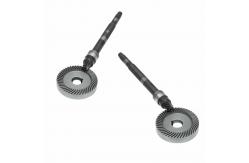180 Polisher Bevel Gear Kit With Large Transmission Ratio For Stability
|
|
180 Polisher Bevel Gear Kit With Large Transmission Ratio For
Stability I. Basic Transmission Logic —— Spatial Direction Change of Bevel
Gears
II. Coordination with the Polisher —— “Precise Control of Grinding
Actions”
III. Key Design —— “High Wear Resistance + Low Vibration” for
Polisher Adaptation
This set of bevel gears is the “power direction - changing hub” of the 180 polisher: it realizes power direction change through spatial vertical shaft transmission, cooperates with the motor and the speed - regulating mechanism, and precisely controls the rotation speed and torque of the polishing disc; with high - wear - resistance materials and high - precision tooth profile design, it ensures the stability and precision of the polisher under long - term and high - pressure grinding. Its design logic reflects “spatial transmission adaptation + working condition demand customization”, and it is the core transmission foundation for the polisher to achieve efficient and precise grinding —— Small gears drive large - scale grinding and support the surface treatment processes in industries such as metal processing, stone treatment, and furniture manufacturing.
DINGSCO Precision Gear Solutions — Pioneering Force in Equipment Transmission
|
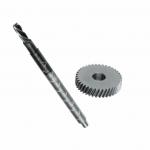
|
Cylindrical Gear With Twist Drill Helical Tooth For 10mm Electric Drill |
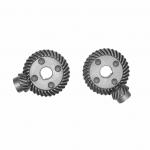
|
Spiral Bevel Gear For 100 Angle Grinder 90° Spatial Direction Change |
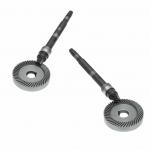
|
180 Polisher Bevel Gear Kit With Large Transmission Ratio For Stability |
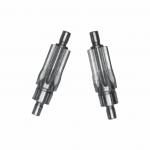
|
Spline Shaft Transmission Component For 7mm Cordless Electric Drills |
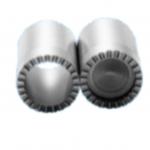
|
Contrate Grinding Gear Low Noise Customized Pinion For Power Tool |
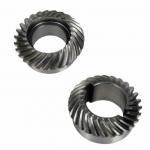
|
Grinding Meshing Gear Set Conical Pinion for Versatility Power Tool |

